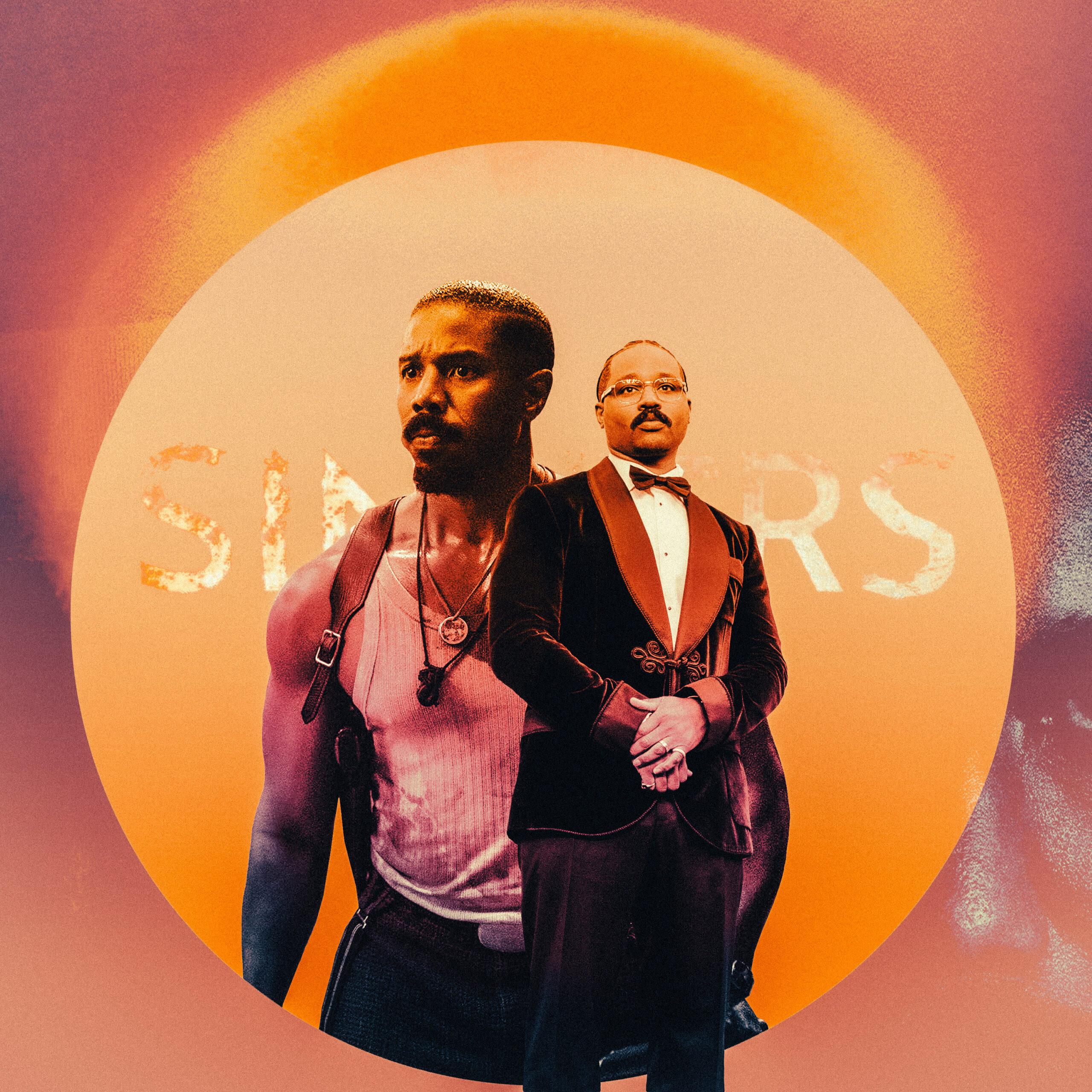
Stop me if you’ve heard this one before: Under David Zaslav’s reign, Warner Bros. finds itself in dire straits. After Joker: Folie à Deux bombed at the box office last year, Mickey 17 and The Alto Knights have joined it; in fact, the two films could collectively lead to more than $100 million in losses for the studio. As a result, studio heads Mike De Luca and Pam Abdy find themselves in Zaslav’s crosshairs, and he’s already speaking with candidates to potentially replace them. One particular gripe for Zaslav, according to reports, is that De Luca and Abdy have favored filmmaker-driven projects—such as Paul Thomas Anderson’s upcoming One Battle After Another—a bit too much for his liking.
It makes sense that the executive notorious for killing movies for a tax write-off would see anything other than IP projects as a risk not worth taking. But while De Luca and Abdy haven’t knocked everything out of the park at Warner Bros., I’d argue the duo got one thing right: They hitched their wagon to Ryan Coogler.
With just four features under his belt, Coogler has already established himself as one of the most exciting young directors in Hollywood. Coogler’s reputation is such that a bidding war ensued among Sony, Warner Bros., and Universal for the distribution rights to his latest project, the period supernatural thriller Sinners, coming to theaters on Friday. Obviously, after emerging victorious from the Sinners sweepstakes, Warner Bros. is hoping for big things from the film, and it could really use a win after a few pricey setbacks. But Sinners is just as important for Coogler: It’s a film that, for better or worse, could define the next stage of his promising career.
While Coogler’s made a name for himself in the world of blockbusters, he started small, writing and directing 2013’s Fruitvale Station with a budget of $900,000. Based on the events that led to the death of Oscar Grant (played by frequent collaborator Michael B. Jordan) at the hands of a Bay Area transit officer, Fruitvale Station employs a loose, naturalistic style that makes the viewer feel as if they’ve been let inside the protagonist’s life and community—right up until it all ends in tragedy. Fruitvale Station packs an emotional punch without ever coming across as cloying or sentimental, which is harder than it looks, but Coogler navigated that tightrope like a seasoned vet. As a debut, it’s an impressive statement of intent.
Since Fruitvale Station, however, Coogler has plied his trade in the studio system. He leveled up with Creed, the Rocky spinoff starring Jordan as Adonis Creed, the son of Rocky Balboa’s foe turned friend, Apollo Creed. The Rocky franchise has long been Sylvester Stallone’s baby, but Coogler put his own stamp on it, including in a bravura single-take fight scene that makes you feel as if you’re part of the action. But as former Ringer staff writer Robert Mays noted, Coogler’s greatest achievement is making the world of Creed so authentic and lived in, even in little moments like when Adonis and Bianca Taylor (Tessa Thompson) grab a cheesesteak. “What sets Creed — and by most accounts, Black Panther — apart is not how big Coogler can make these massive franchise movies seem,” Mays wrote. “It’s how personal he can make them feel.”
To that end, Black Panther, Coogler’s third movie, is at its best when the greater Marvel machine takes a back seat to the intricacies of Wakanda: the coronation ceremony, the Ancestral Plane, the Jabari tribe’s whole deal. (M’Baku forever.) I have my issues with the MCU, especially the way so many of the films feel as if they’ve come out of an assembly line with little sense of authorship—the kind of quality that led Edgar Wright to bow out of directing Ant-Man. But the wonderful thing about Black Panther is that its marriage of the epic and the intimate feels intrinsic to Coogler’s sensibilities; his fingerprints are all over the movie.
True to any Coogler joint, one of the highlights of Black Panther is Jordan, who plays Erik Killmonger, whose belief that Wakanda should spread its wealth to disadvantaged communities of color leads T'Challa (Chadwick Boseman) to lift the veil on Wakanda to the rest of the world. Sadly, we never got to see what Boseman could do in the sequel, as the actor died in 2020 after a private battle with cancer. Boseman’s death left a void that could never be filled in Black Panther: Wakanda Forever, but Coogler made the best of an impossible situation. The film tackles T’Challa’s absence head-on, as his mother, Ramonda (Angela Bassett), and sister, Shuri (Letitia Wright), wrestle with how to lead Wakanda when faced with a new adversary from the ocean’s depths. Not everything works—especially the movie’s bloated 161-minute running time—but Wakanda Forever doesn’t sink under the weight of expectations. Besides, even if it doesn’t hold a candle to the original film, Wakanda Forever is far more accomplished than most of Marvel’s post-Endgame output—a reminder that Coogler’s B material can still deliver high-grade entertainment.
Sinners, however, is a different challenge entirely. After three straight blockbusters attached to IP—all profitable, all well received by critics—this is Coogler’s blank check film. Set in 1930s Mississippi, the film follows twin brothers Smoke and Stack (Jordan times two), who return to their hometown to open up a juke joint. While the trailers haven’t hidden Sinners' supernatural elements—hint: It features the sort of fanged creatures that need to be invited into homes and are repelled by garlic—the real draw of the movie is the music. Blues is the main attraction, but Sinners is also interested in the ways music acts as a bridge between generations: a force as eternal and elemental as the undead. This sentiment is brought to life in the most stunning sequence of the film, in which music from the past, present, and future merges under one roof through composer Ludwig Göransson’s genre- and generation-crossing score. It’s the coolest thing I’ve seen all year.
All in all, there’s a lot to sink your teeth into with Sinners. Most importantly, after several franchise at-bats, Sinners will be an opportunity to see whether slapping “From Director Ryan Coogler” on an original concept is enough to reel in a sizable audience. As a point of comparison, think about the road that led Christopher Nolan to Inception: a couple of indies (Following, Memento), mid-budget dramas based on preexisting IP (Insomnia, The Prestige), and superhero movies (Batman Begins, The Dark Knight). After he proved himself every step of the way, Warner Bros. handed Nolan a $160 million budget for an original blockbuster, and Inception more than met the hype, grossing north of $800 million and winning four Oscars. Now, Nolan can make whatever he wants at whatever cost: He’s a selling point unto himself.
Considering that Nolan infamously left Warner Bros. for Universal after the Tenet fiasco, it makes sense that the studio is eyeing someone like Coogler to make a leap. If Sinners ends up being a success—a projected $40 million opening weekend and universal critical acclaim are a very promising start—it could pave the way for Coogler to direct more original tentpoles. Were Sinners to be a commercial letdown, it wouldn’t be the end of the world, either: A third Black Panther film hasn’t officially been green-lit, but Denzel Washington (!) said that Coogler is writing a part for him. It goes without saying: A Black Panther sequel with Denzel would do numbers.
In any event, I highly doubt that Sinners will be the only time Coogler takes a stab at an original blockbuster. The pathways for a filmmaker to create non-IP event movies have continued to shrink in the 21st century, but Coogler has plenty going for him: a string of hits, a formidable partnership with a young movie star, and most of all, a dynamic directorial style that shines in moments big and small. Coogler’s talent is there for all to see; it would be downright sinful for Hollywood to put it to waste.



